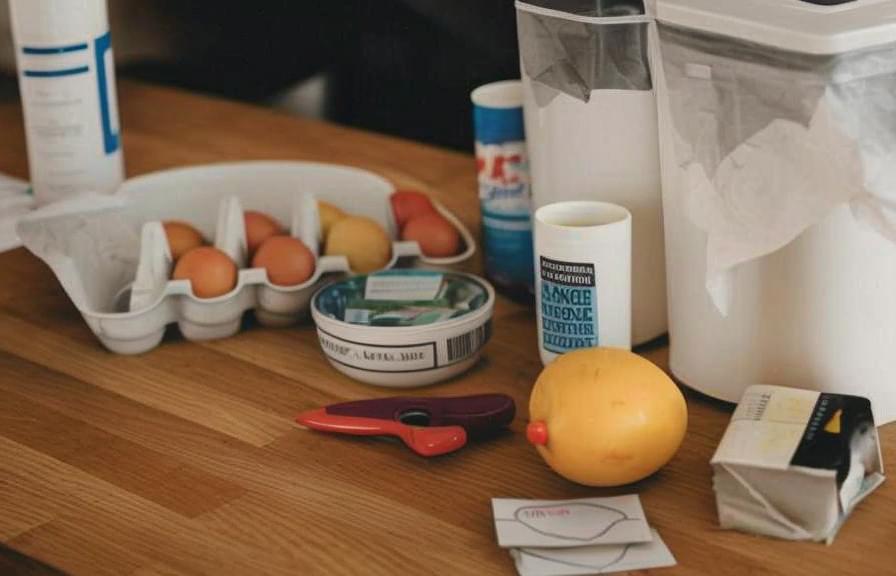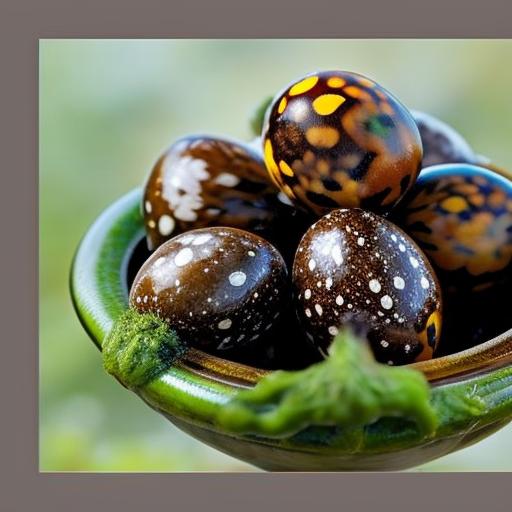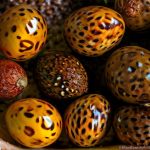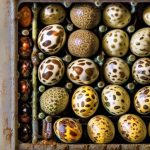Proper handling of quail eggs is crucial for maintaining their quality and safety. Quail eggs are delicate and can easily break if mishandled, which can lead to contamination and spoilage. Additionally, quail eggs are highly perishable and require careful handling to ensure they remain fresh for consumption. Proper handling also plays a significant role in preserving the nutritional value of quail eggs. Mishandling can lead to a loss of nutrients and compromise the overall quality of the eggs. Therefore, understanding the importance of proper handling is essential for anyone involved in the production, collection, storage, and utilization of quail eggs.
Furthermore, proper handling of quail eggs is important for food safety. Contaminated eggs can pose serious health risks, including salmonella poisoning. By following proper handling procedures, the risk of contamination can be significantly reduced, ensuring the safety of consumers. Additionally, proper handling practices also contribute to the overall quality of quail egg products, such as quail egg-based dishes and recipes. By maintaining the integrity of the eggs through proper handling, chefs and home cooks can create delicious and nutritious meals that showcase the natural flavor and texture of quail eggs. In summary, understanding the importance of proper handling is essential for preserving the quality, safety, and nutritional value of quail eggs.
Key Takeaways
- Proper handling of quail eggs is crucial for maintaining their quality and safety
- Creating the ideal environment for quail eggs involves providing clean nesting areas and proper nutrition for the quails
- Collecting quail eggs should be done carefully to avoid breakage and contamination
- Storing quail eggs in a clean and cool environment can help prolong their shelf life
- Maintaining quail egg quality requires regular inspection for any signs of spoilage or deterioration
- Ensuring quail egg safety involves proper washing and sanitization before consumption
- Utilizing quail eggs in various recipes can provide a nutritious and flavorful addition to meals
Creating the Ideal Environment for Quail Eggs
Creating the ideal environment for quail eggs is essential for ensuring their quality and freshness. Quail eggs are sensitive to temperature and humidity, so it is important to store them in a cool, dry place. Ideally, quail eggs should be kept at a temperature between 45-55 degrees Fahrenheit and a relative humidity of around 70-80%. This environment helps to slow down the natural aging process of the eggs, preserving their freshness for a longer period of time. Additionally, it is important to store quail eggs away from strong odors and other foods with strong flavors, as quail eggs can easily absorb these odors, affecting their taste and quality.
In addition to temperature and humidity, it is important to handle quail eggs with care to prevent breakage. Quail eggs have delicate shells that can easily crack if mishandled, so it is important to handle them gently when collecting, storing, and transporting them. Providing a cushioned surface for the eggs, such as a soft bedding material in the nesting area, can help prevent breakage and maintain the integrity of the shells. By creating the ideal environment for quail eggs, producers and consumers can ensure that the eggs remain fresh, safe, and of high quality.
Collecting Quail Eggs
Collecting quail eggs requires careful attention to detail and proper handling techniques to ensure their quality and safety. When collecting quail eggs, it is important to handle them gently to prevent breakage. Quail eggs have delicate shells that can easily crack if mishandled, so it is important to use a soft touch when gathering them from the nesting area. Additionally, it is important to collect quail eggs frequently to prevent them from becoming soiled or damaged by other birds or environmental factors.
When collecting quail eggs, it is also important to inspect each egg for any signs of damage or contamination. Cracked or soiled eggs should be discarded to prevent the risk of contamination and spoilage. It is also important to handle the eggs with clean hands and use clean collection containers to maintain their cleanliness and quality. By following proper collection procedures, producers can ensure that the quail eggs remain fresh and safe for consumption.
Storing Quail Eggs
Storing quail eggs properly is essential for maintaining their freshness and quality. Quail eggs should be stored in a cool, dry place with a consistent temperature and humidity level. Ideally, quail eggs should be kept at a temperature between 45-55 degrees Fahrenheit and a relative humidity of around 70-80%. This environment helps to slow down the natural aging process of the eggs, preserving their freshness for a longer period of time. It is also important to store quail eggs away from strong odors and other foods with strong flavors, as quail eggs can easily absorb these odors, affecting their taste and quality.
When storing quail eggs, it is important to handle them with care to prevent breakage. Quail eggs have delicate shells that can easily crack if mishandled, so it is important to place them in storage containers with cushioning material to protect them from damage. Additionally, it is important to store quail eggs with the pointed end facing downward to help maintain their freshness and prevent the yolk from moving away from the center. By following proper storage procedures, producers and consumers can ensure that quail eggs remain fresh, safe, and of high quality.
Maintaining Quail Egg Quality
Maintaining the quality of quail eggs requires attention to detail and proper handling throughout the production and storage process. To maintain the quality of quail eggs, it is important to handle them with care at every stage, from collection to storage. This includes gentle handling during collection, proper cleaning and inspection procedures, and careful storage practices. By following these steps, producers can ensure that the eggs remain free from damage and contamination, preserving their quality for consumption.
Additionally, maintaining the quality of quail eggs also involves monitoring their freshness and shelf life. It is important to keep track of the age of the eggs and use older ones first to prevent spoilage. Proper rotation of stock ensures that consumers receive fresh quail eggs with optimal flavor and nutritional value. By maintaining the quality of quail eggs through proper handling and storage practices, producers can provide consumers with a superior product that meets their expectations for taste, texture, and safety.
Ensuring Quail Egg Safety

Ensuring the safety of quail eggs is paramount for protecting consumers from foodborne illnesses and maintaining a positive reputation for producers. Proper handling practices play a crucial role in ensuring the safety of quail eggs throughout the production and distribution process. This includes following strict hygiene protocols during collection and processing, as well as implementing quality control measures to identify any potential risks of contamination or spoilage.
In addition to proper handling practices, it is important to educate consumers about safe handling and consumption practices for quail eggs. This includes providing clear labeling with storage instructions and expiration dates, as well as offering guidance on safe cooking methods to eliminate any potential pathogens. By prioritizing safety at every stage of production and distribution, producers can build trust with consumers and establish a reputation for providing safe and high-quality quail eggs.
Utilizing Quail Eggs
Quail eggs are a versatile ingredient that can be used in a wide variety of culinary applications. From appetizers to desserts, quail eggs add a unique flavor and texture to dishes that can elevate their overall appeal. Chefs and home cooks can use quail eggs in both traditional and innovative recipes to create visually stunning and delicious meals that showcase the natural beauty of these small but mighty ingredients.
In addition to their culinary versatility, quail eggs are also prized for their nutritional value. They are rich in protein, vitamins, and minerals, making them a healthy addition to any diet. By incorporating quail eggs into their meals, consumers can enjoy a nutritious boost while savoring the delicate flavor of these small wonders. Whether used as a garnish or featured as a main ingredient, quail eggs offer endless possibilities for creative cooking and healthy eating.
In conclusion, proper handling practices are essential for maintaining the quality, safety, and nutritional value of quail eggs. By creating an ideal environment for quail eggs, collecting them with care, storing them properly, maintaining their quality, ensuring their safety, and utilizing them in culinary applications, producers and consumers can enjoy all the benefits that these small but mighty ingredients have to offer.
Sure, here’s the paragraph with the related article included as an tag:
If you’re interested in learning more about keeping quail eggs, you might also want to check out this article on how big a coop needs to be for a chicken. Understanding the space requirements for chickens can also provide valuable insights into creating an optimal environment for quail and their eggs.
FAQs
What are quail eggs?
Quail eggs are the eggs laid by various species of quail, which are small ground-nesting birds.
How do you keep quail eggs fresh?
To keep quail eggs fresh, store them in the refrigerator at a temperature of around 45-50°F (7-10°C) in their original carton or in an egg holder with the pointed end down.
How long do quail eggs last?
Quail eggs can last for up to 2-3 weeks when stored properly in the refrigerator.
Can you freeze quail eggs?
Yes, you can freeze quail eggs. Crack the eggs into a freezer-safe container, gently beat them, and then freeze. They can be kept frozen for up to 3 months.
How do you clean quail eggs?
To clean quail eggs, gently wipe them with a damp cloth or sponge to remove any dirt or debris. Avoid using water as it can remove the protective coating on the eggs.
Are quail eggs safe to eat raw?
Quail eggs, like chicken eggs, can be consumed raw, but there is a risk of salmonella contamination. It is recommended to cook quail eggs thoroughly before consuming them to reduce the risk of foodborne illness.
Meet Walter, the feathered-friend fanatic of Florida! Nestled in the sunshine state, Walter struts through life with his feathered companions, clucking his way to happiness. With a coop that’s fancier than a five-star hotel, he’s the Don Juan of the chicken world. When he’s not teaching his hens to do the cha-cha, you’ll find him in a heated debate with his prized rooster, Sir Clucks-a-Lot. Walter’s poultry passion is no yolk; he’s the sunny-side-up guy you never knew you needed in your flock of friends!







